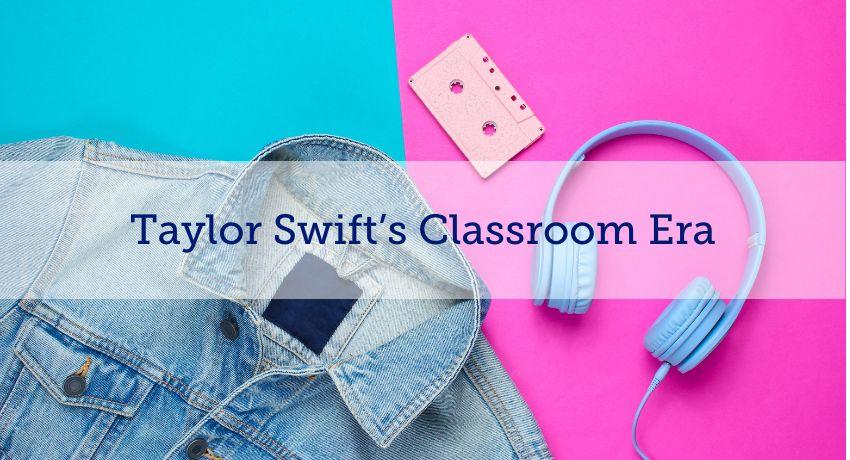Spring registration is well underway (classes start Jan. 21! Join us!). Pink and yellow flyers all over the building announce the addition of what might be the semester’s most eyebrow-raising course: HUM 2990 American Pop Culture – Taylor Swift.
It’s knee-jerk for some people to see a class like this as a gimmick or a blatant and pandering attempt to reach The Youths. I’ve seen huffy social media posts from faculty at other schools about a similar course at Harvard—aren’t the Great American Authors like Willa Cather and William Wordsworth enough to lure students on their own?! Why must we use the bribe of pop culture to make the young people care about literature that’s important, one senior professor of my acquaintance complained.
The implication, of course, is that studying pop culture in and of itself is un-academic. It’s a bubble gum subject, according to people who still imagine college as a place where students should go to be confused about the structure of organophosphate compounds and to think big thoughts about epistemology, cosmology, sociology, or whatever other -ology they might encounter. Essentially, to slog their way through Serious Things until they are Real Adults, not to remain perpetual children obsessed with pop culture.
Make it not just pop culture, but world’s most famous young blonde(ish) music star, and you’ve got a class that a lot of people are going to write off as deeply unserious. Especially because our societal inclination is to label anything young people care about as unserious, as my snooty colleague above did. This inclination is an old one, as those of you old enough to remember Beatlemania can attest.
I have two main responses to this dismissive impulse. One, of course pop culture is important. Very few people live a cloistered life of contemplation in their monk cell anymore—most of us are surrounded by popular culture of one flavor or another all the time. Which flavor of pop culture we choose (and what’s even available for us to choose from) is the way that we know our amusements and obsessions and interests both as individuals and as a collective culture. If we refuse to understand these forces, we’re in a very real sense refusing to understand the world around us and how it is acting upon us.
One of those forces, for example, is economic. Swift’s Eras Tour, which ended this month, will probably have a total gross of over $2 billion. The City of Vancouver, Canada, estimated that the final three tour dates there boosted the city’s economy by $157 million all by itself. Money talks, as they say, and I don’t know of an economy in the world that can ignore it when it’s talking that loudly. Pop culture is powerful in both the abstract and the concrete sense, and we ignore it at our peril.
The second, bigger response I have, the Humanities and Fine Arts response, is that it is our mission to teach students how to think, write, and create. And we can do that from any starting point in the known cultural universe. We can start with Taylor Swift lyrics and get to Shakespeare (like Swift, a lover of cheeky wordplay) and from there to developing the next great poet or songwriter through analysis and creative writing exercises.
Using a cultural phenomenon that students are already interested in opens the door to their deeper, broader interest in the world of art, music, performance, and all the other great parts of the cultural experience generally.
It’s good for students to come into the classroom excited to talk about a subject they’re interested in already. I can assure you that suffering and boredom don’t improve learning. It’s good for them to feel like their interests have value and are connected to the larger world of important questions and topics. Call it Taylor-ology.
[Originally published in Gallatin News, January 5, 2025]




